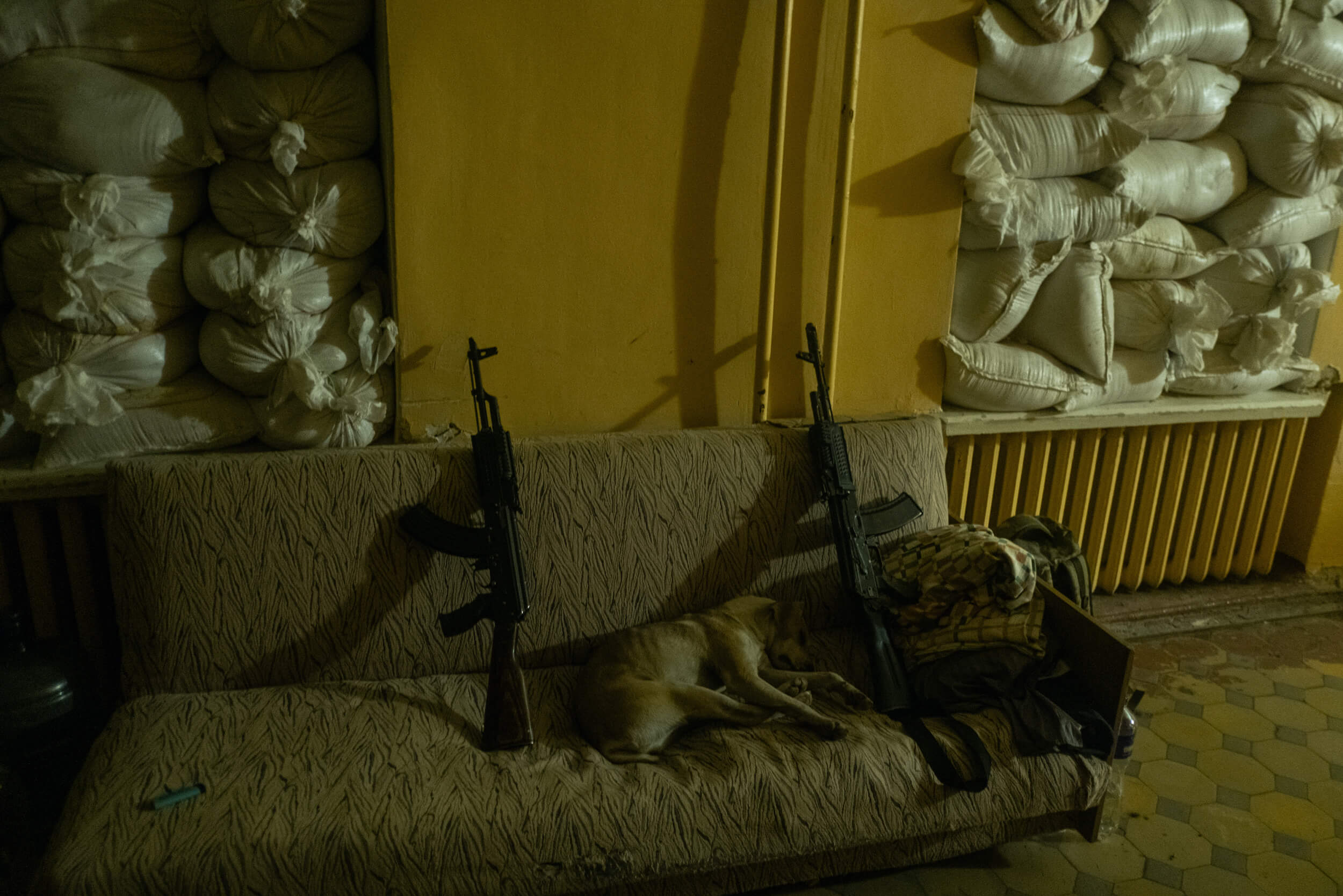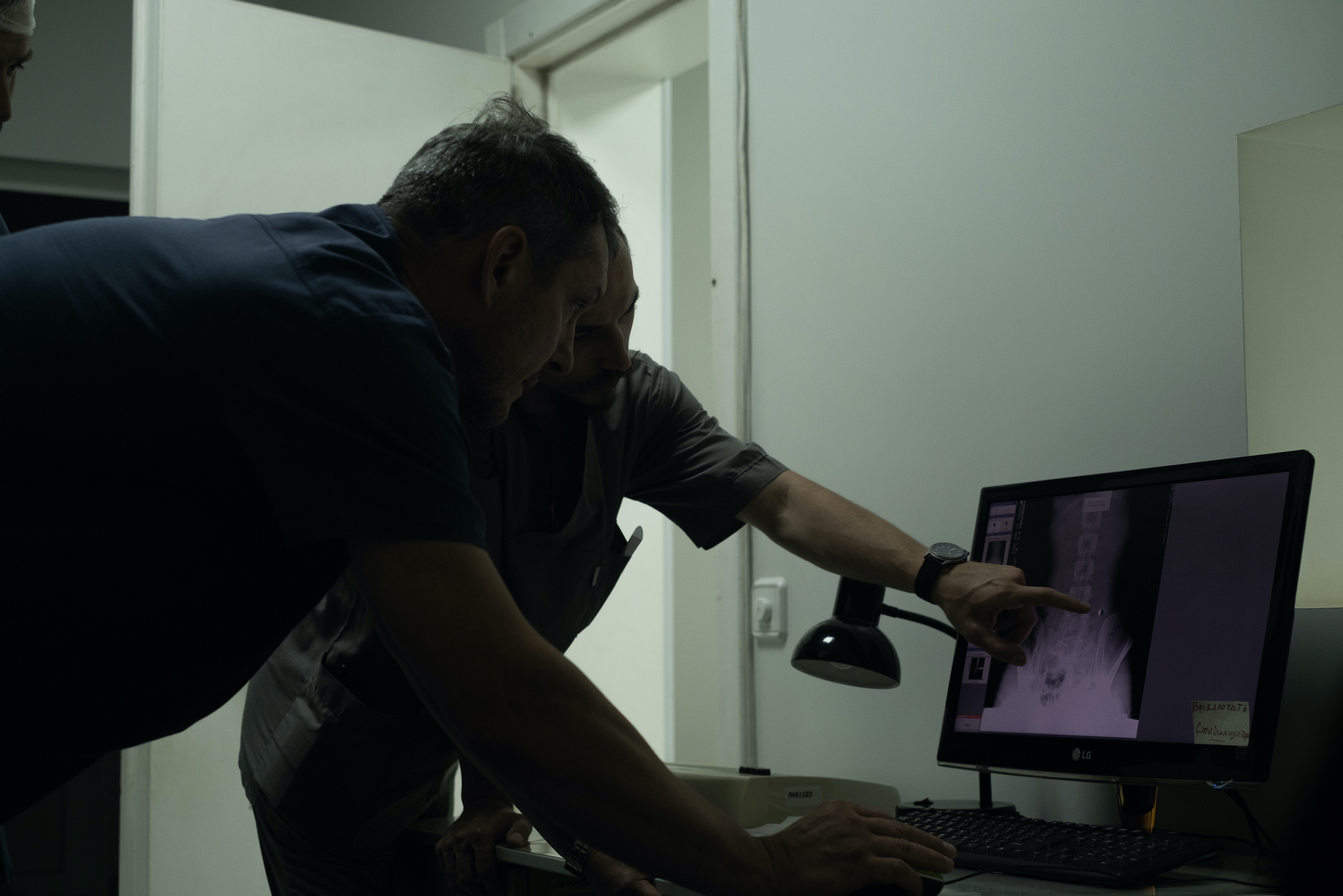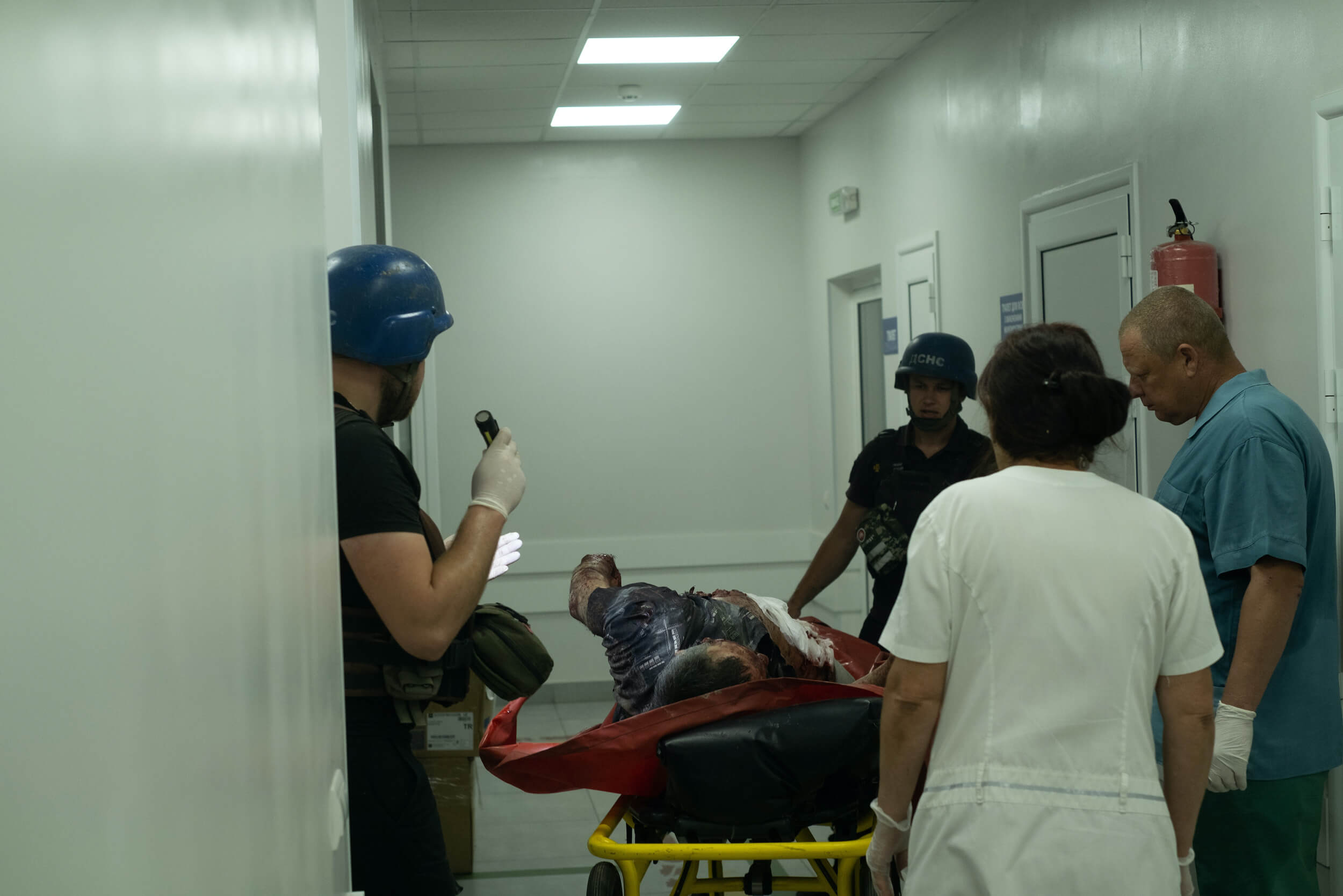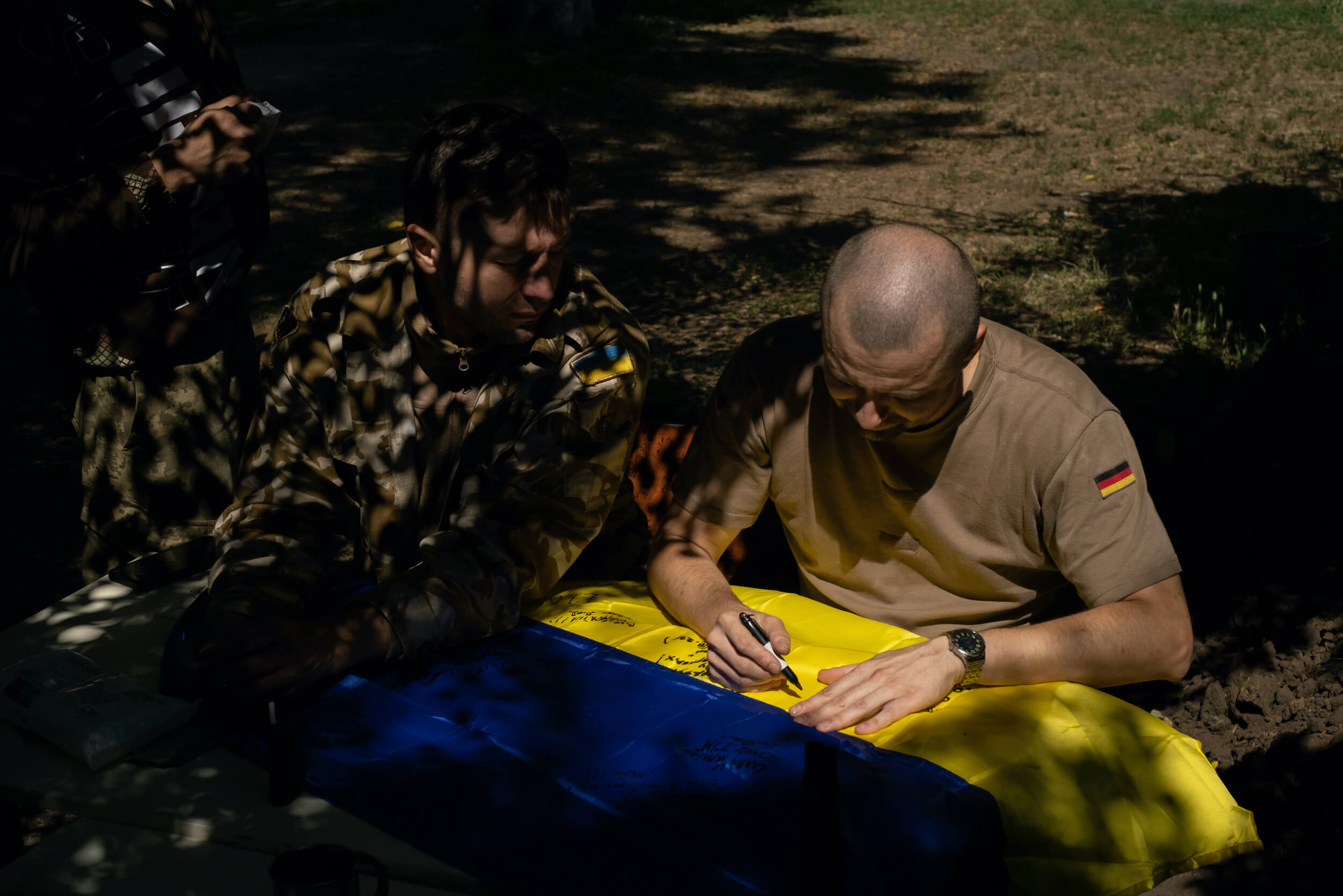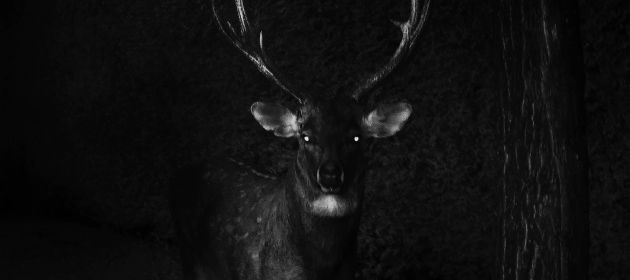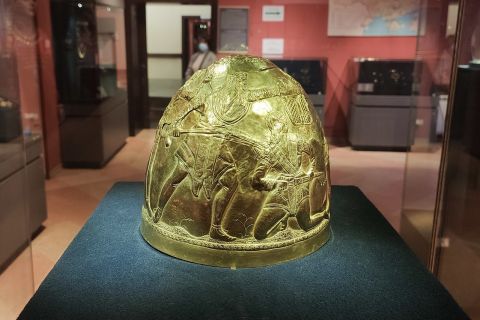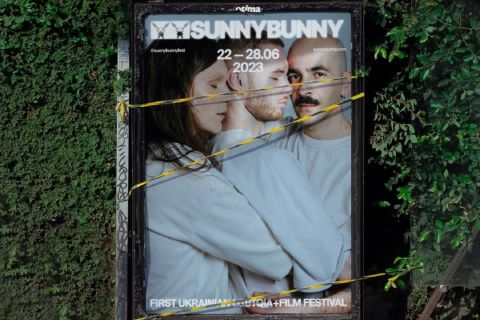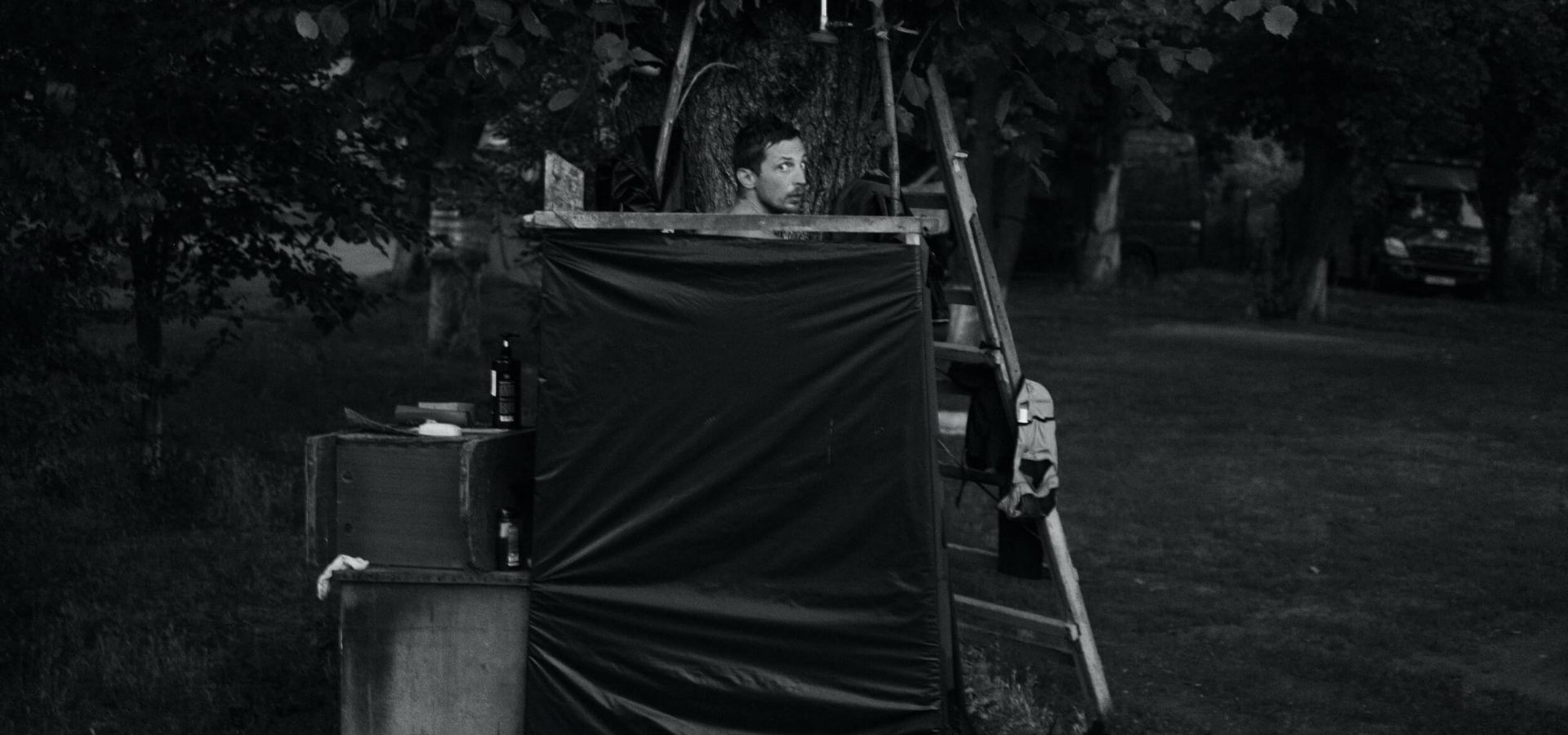
“It’s Like a Summer Camp”: A Photo Report From a Military Hospital in Sloviansk
Mykola Pyrohov Paramedical Hospital was established in 2013 when a volunteer medic brigade started providing medical care to injured participants of the Revolution of Dignity. Now, the hospital is a few kilometres away from the frontline in Sloviansk, with the Russian army incessantly shelling the city.
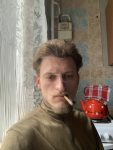
A photographer.
— My partner and I spent a week in Sloviansk. The medics working here are volunteers, and most have full-time jobs in hospitals and clinics at home. They could have stayed there — treating the ill and injured in relatively peaceful places is essential, too. Still, they came here, feeling that if they didn’t, nobody would.
The Armed Forces of Ukraine have allocated several soldiers to guard the hospital and overall ensure the medics’ survival. The guards accompany them everywhere: on their frontline sorties, on their way to get water, and on grocery and supplies shopping outings.
Most doctors take a leave of absence to get here. For luckier ones, it’s an employer-sponsored business trip. There is also one student here — the nineteen-year-old Kyzma, who studies at Bogomolets National Medical University. He helped the Red Cross evacuate the injured from Bucha and Irpin in spring. He saw a lot of brutal stuff there and wasn’t even sure if he’d survive. After the liberation of the Kyiv Region, Kuzma started looking for more ways of helping. This is how he ended up in Sloviansk. The medics work for a month here and then return home when their replacements arrive.
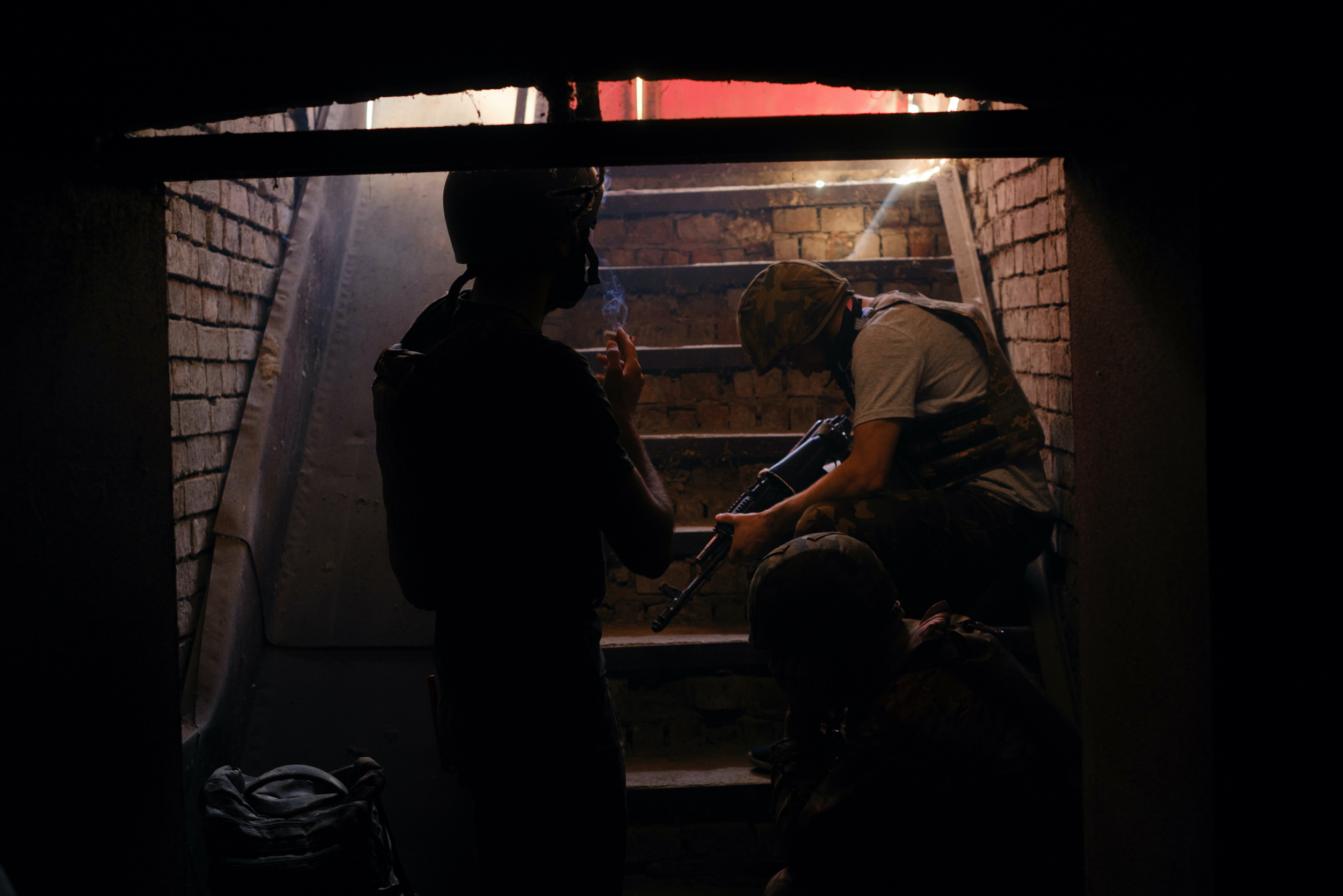
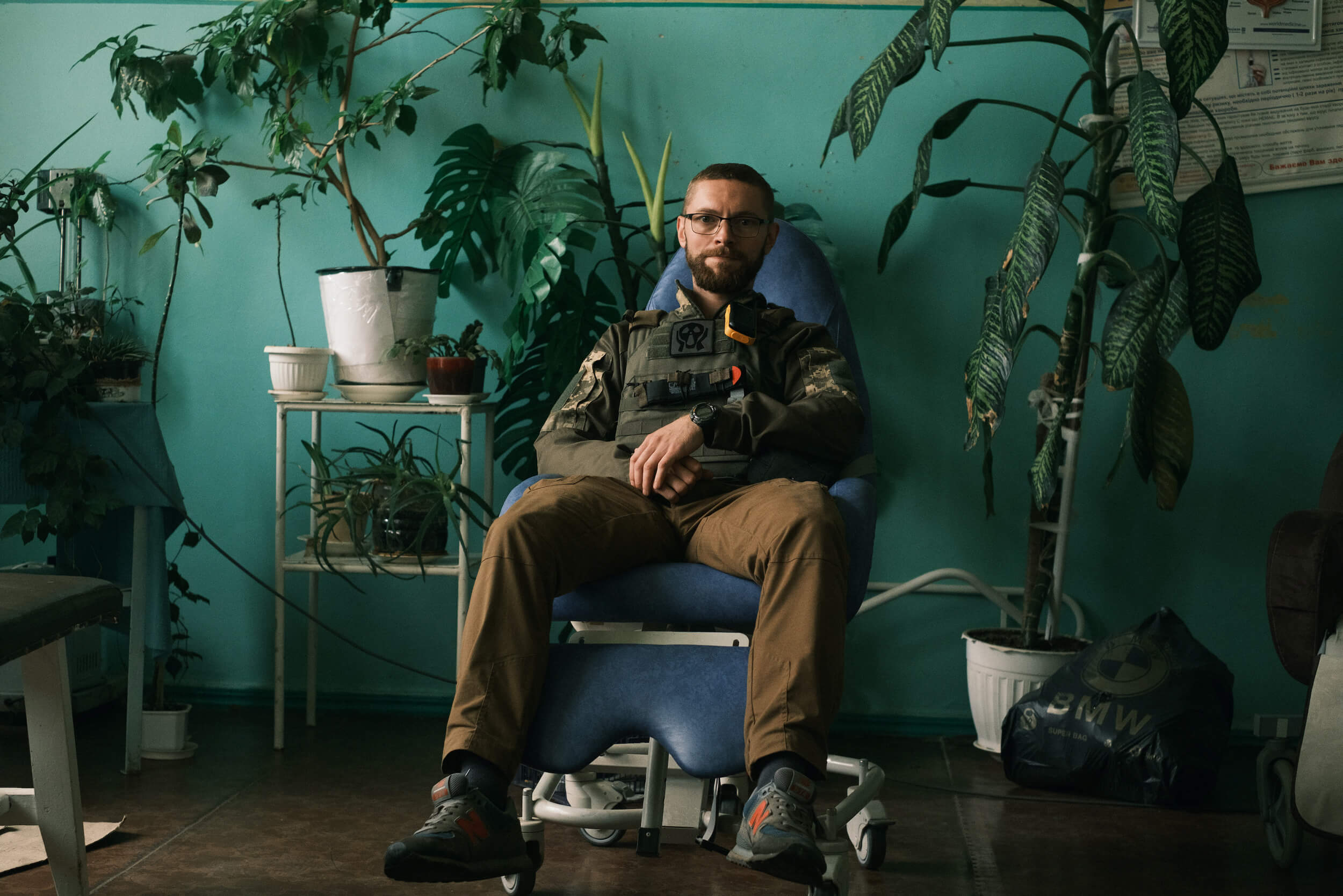
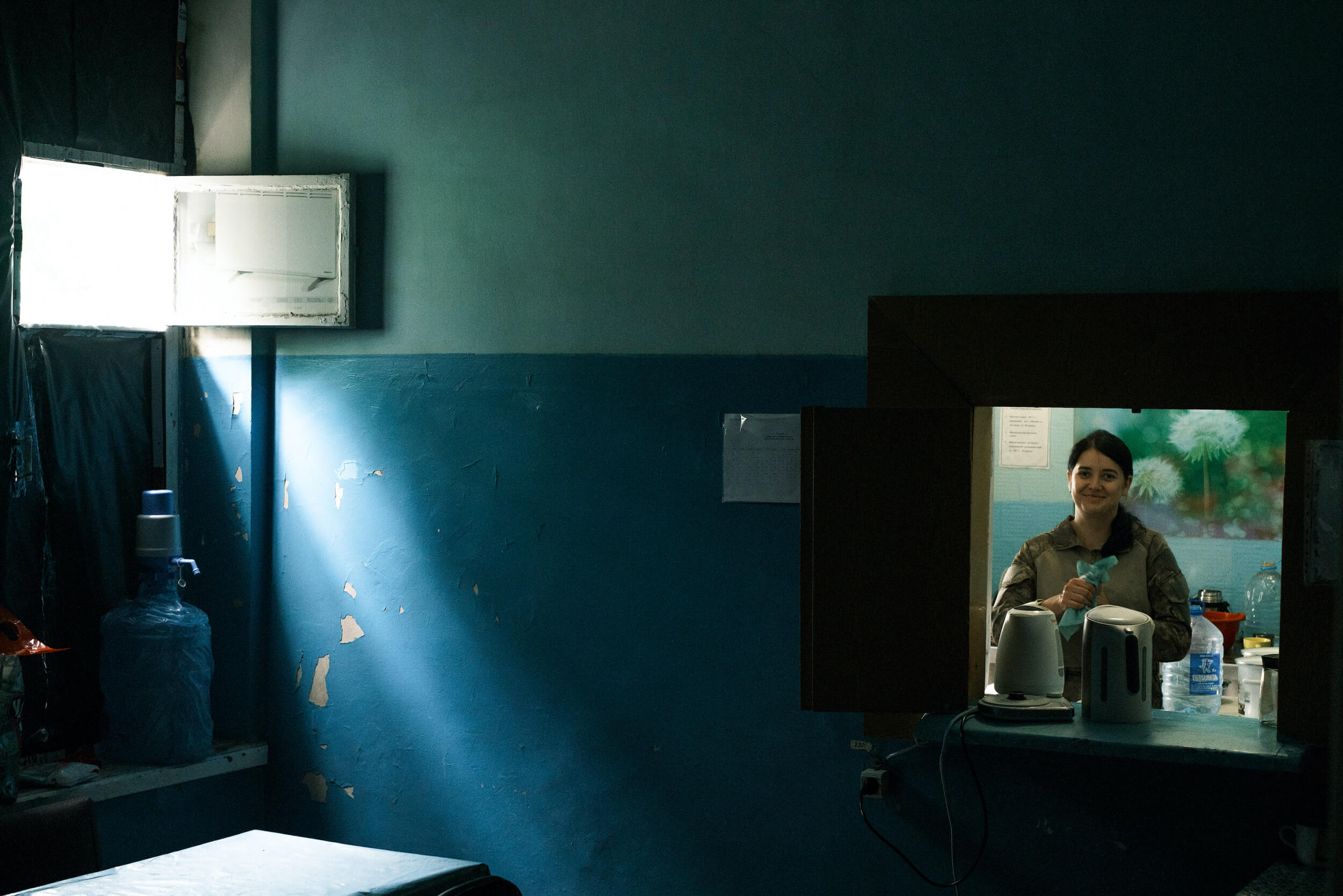
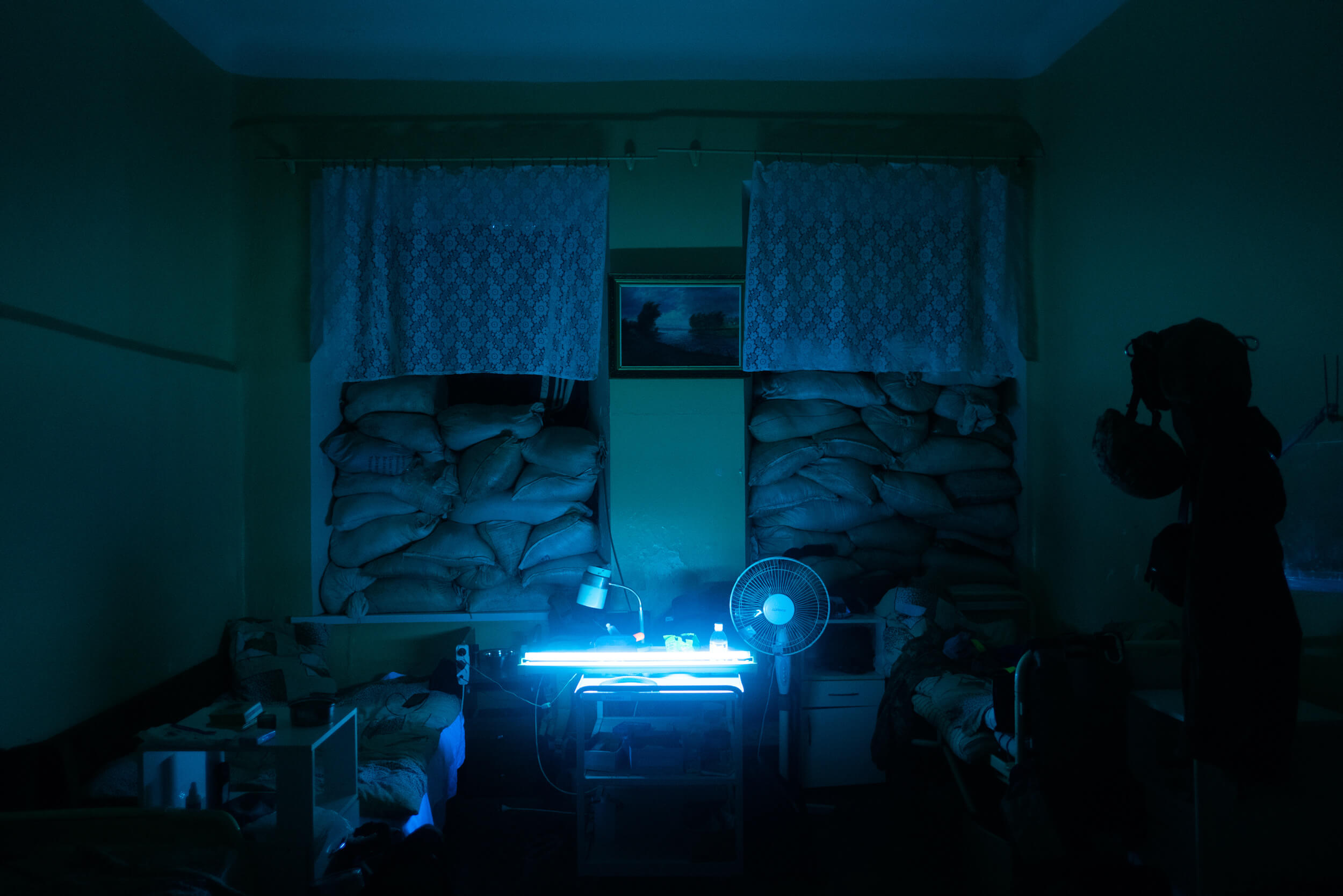
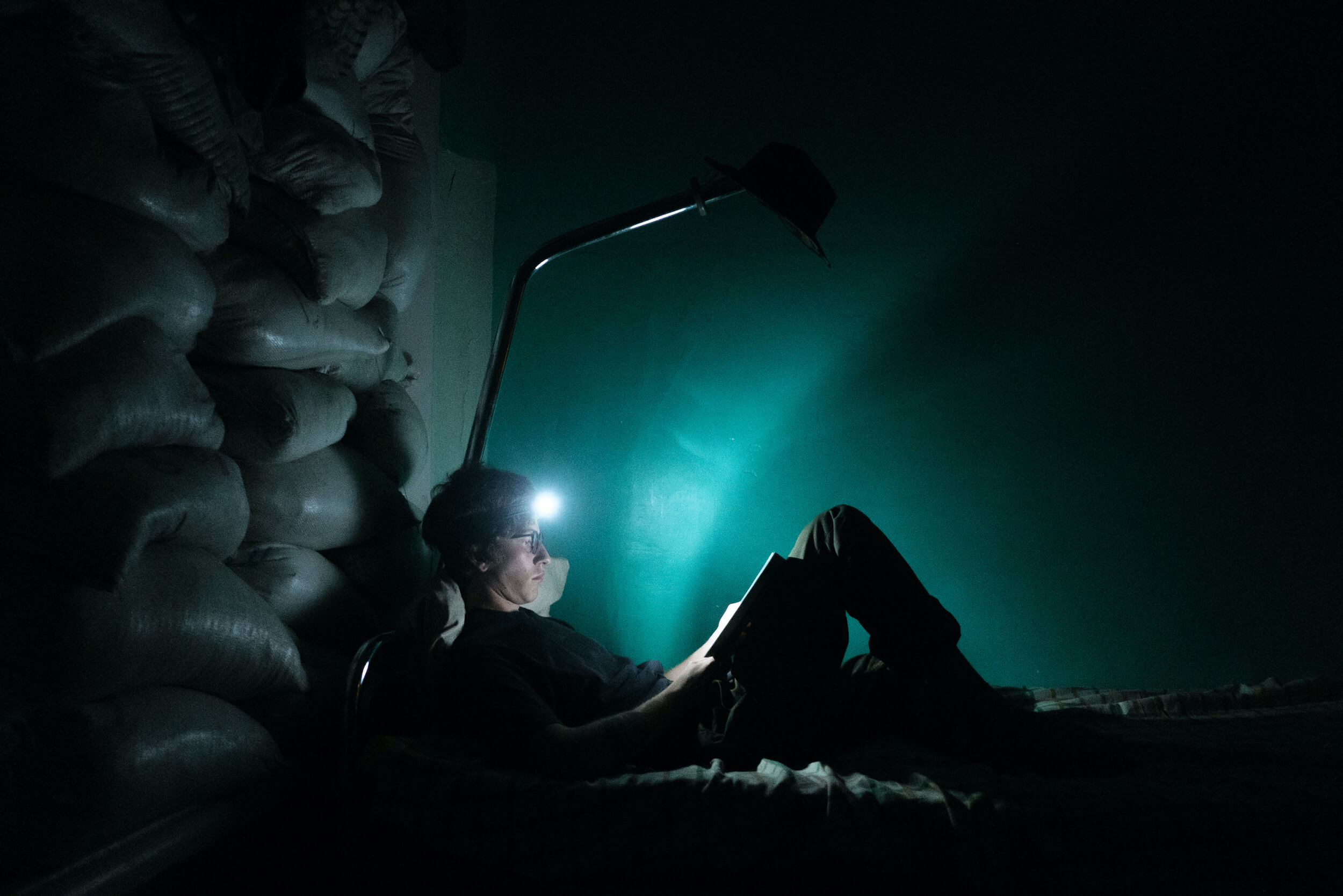
The hospital is located a mere dozen kilometres away from the frontline. You can hear loud and clear the work of our HIMARS and the response of Russian artillery. The hospital is accommodated in an old building. There are tables, a summer shower, and a hammock on the grounds. Save for treating the injured, the facility’s everyday work is cooking food and getting water. And it needs a lot of water: for drinking, washing dishes, and taking a shower. In many ways, it’s like a summer camp, with one exception — its residents are ready to go save lives at any moment.
The first few days were calm. The medics rested, some reading, others watching films or YouTube on their smartphones. If not for the sour borscht, which gave food poisoning to most of the staff, the picture would have been idyllic.
If not for the sour borscht, which gave food poisoning to most of the staff, the picture would have been idyllic.
On the very first day, my colleague and I went for a walk around Sloviansk. We visited the police station, which became ground zero for the war in 2014, and the Security Service building that used to house Girkin’s court. Sloviansk would feel like a regular peaceful city if not for distant artillery thunder and occasional shelling. They have a working coffee place, bakery, and shop there.
Many people have evacuated, and those who stayed won’t have it any other way. Some of the latter don’t want to leave, others have nowhere to go, and then there are those who keep clinging to their houses and pets.
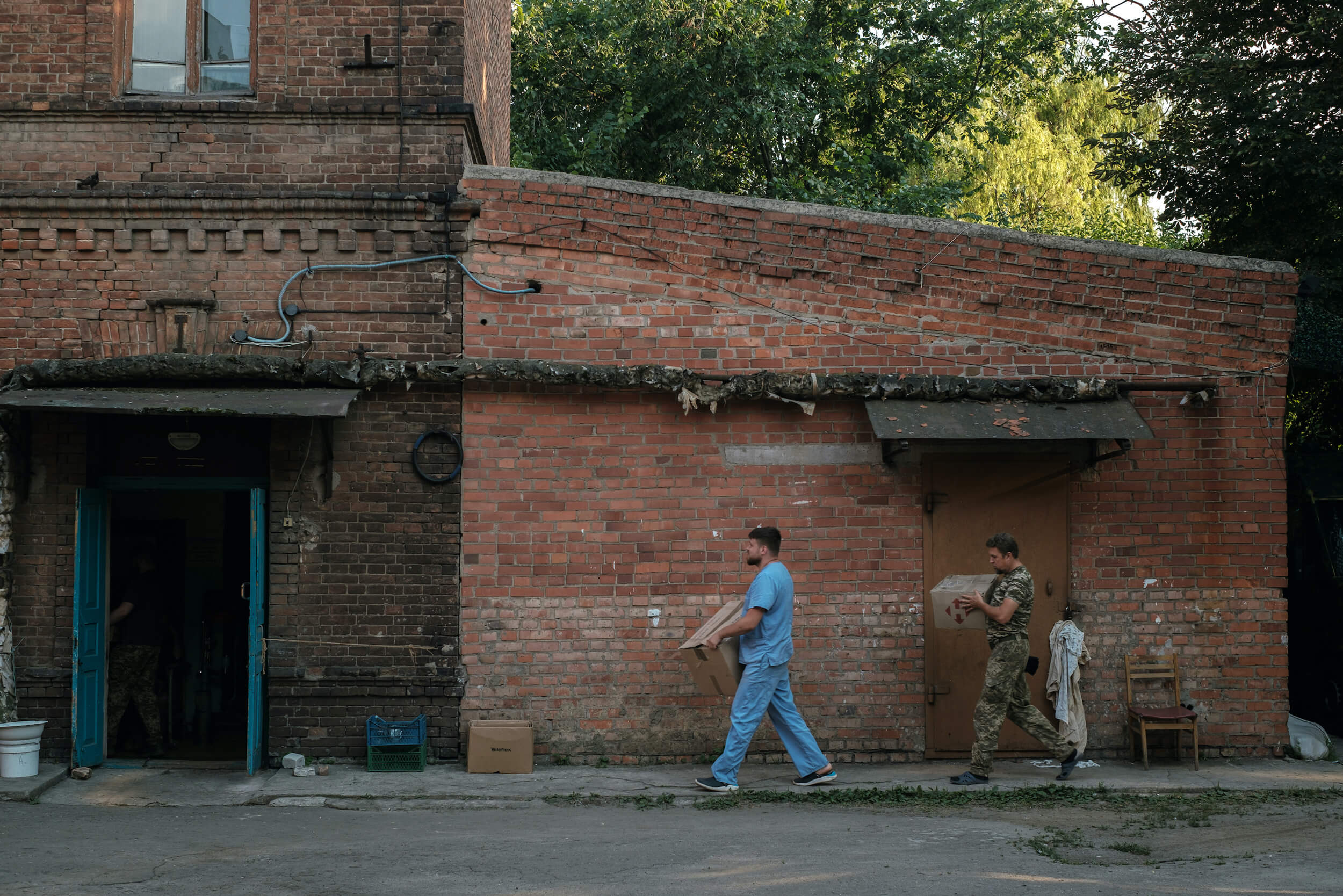
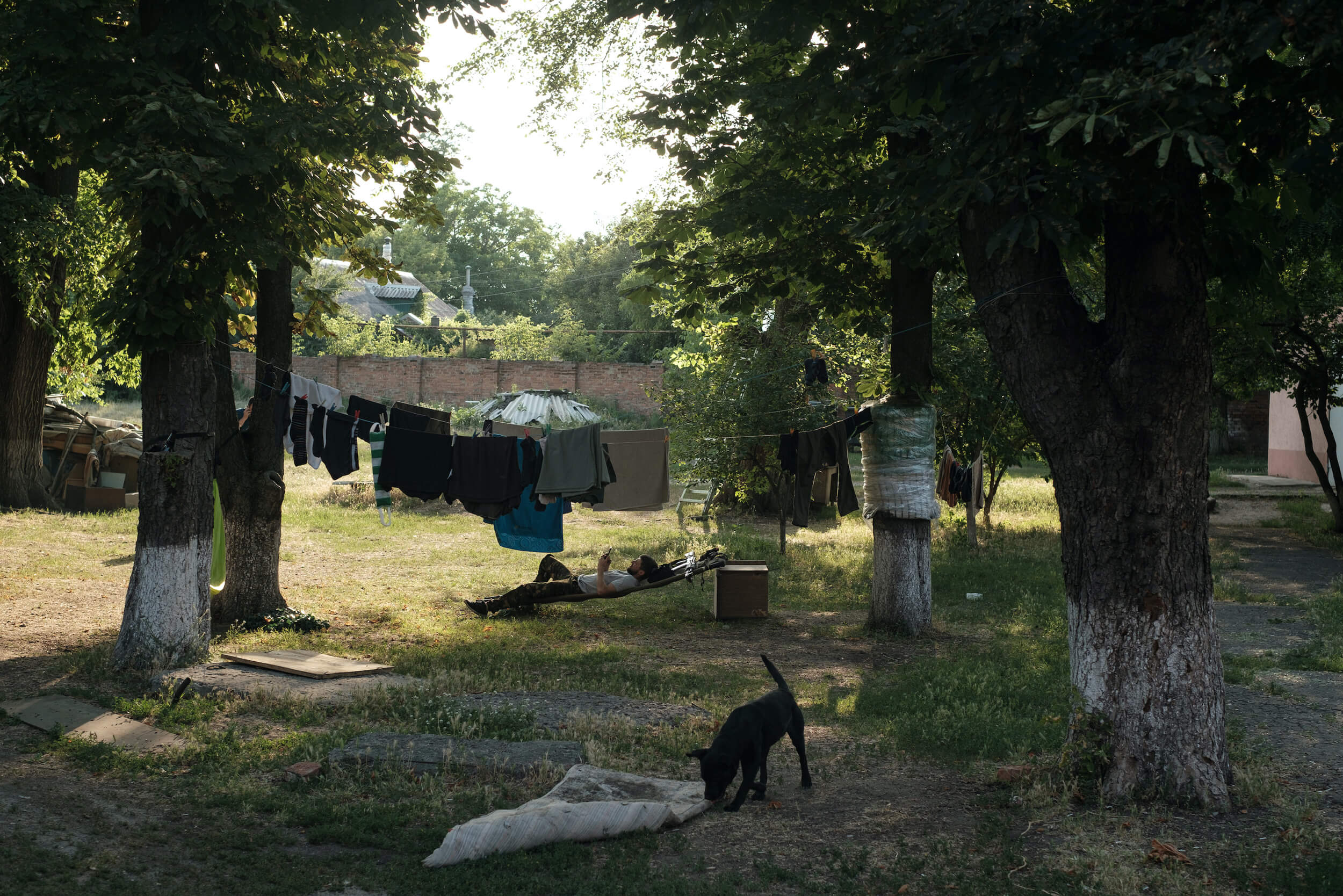
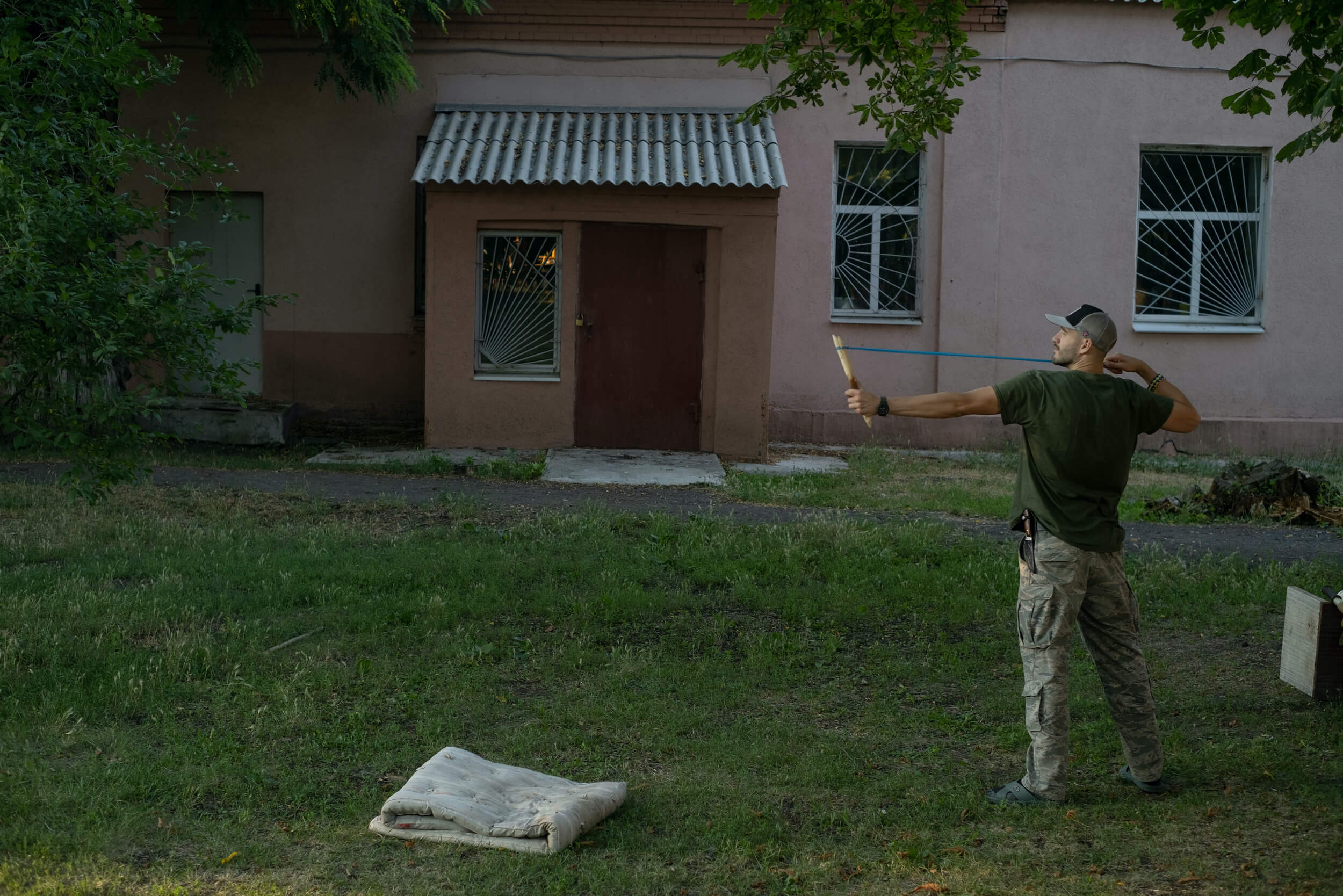
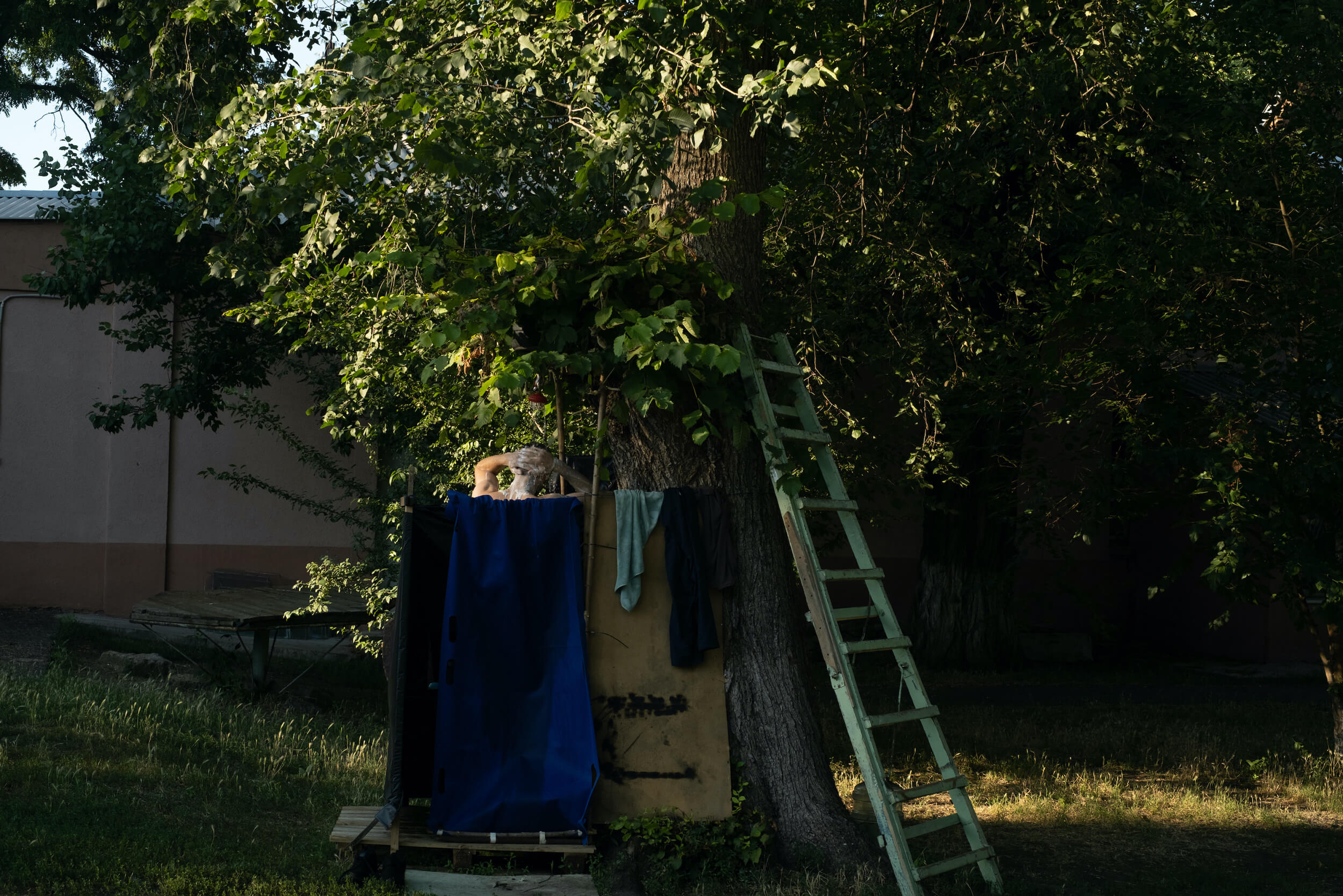
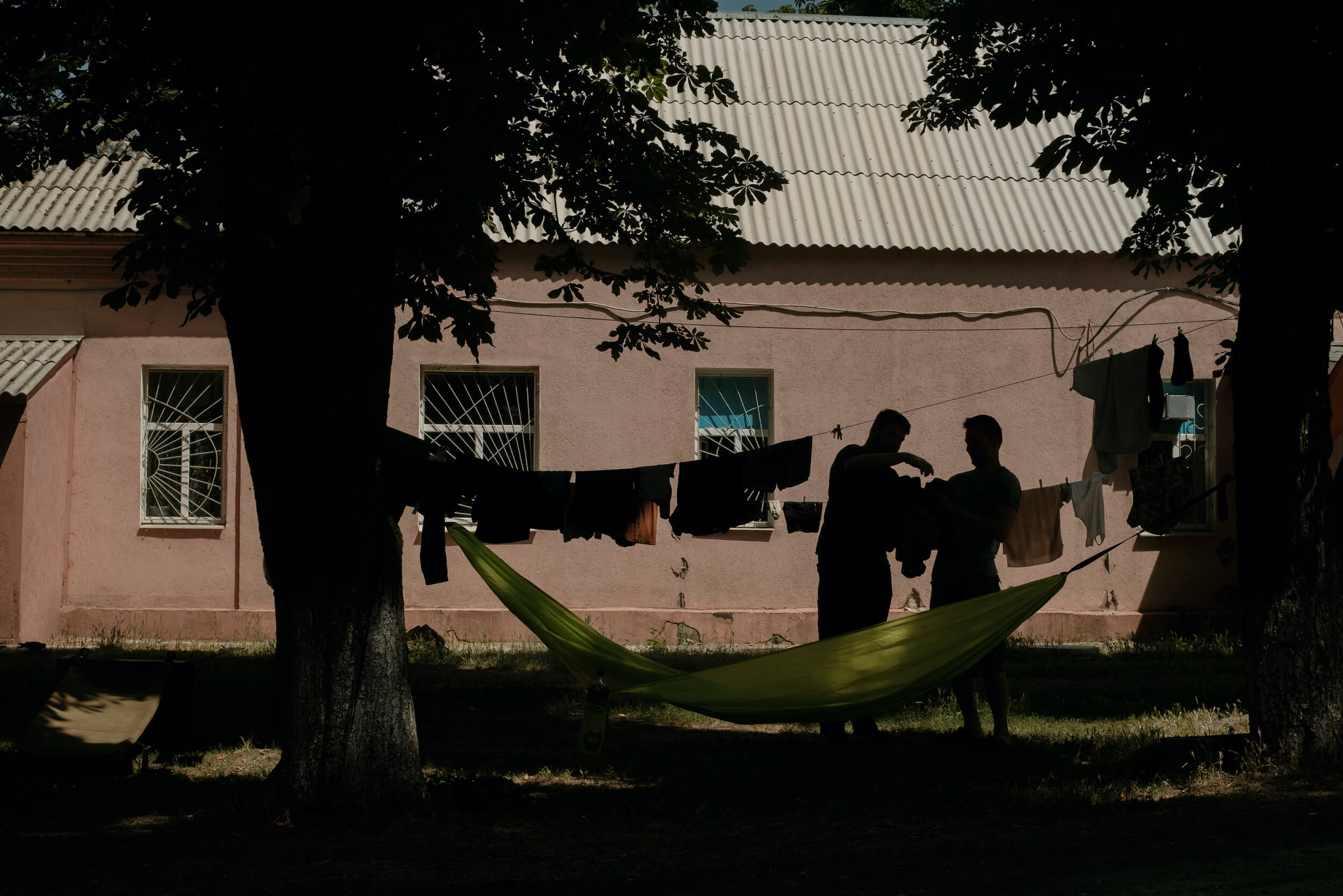
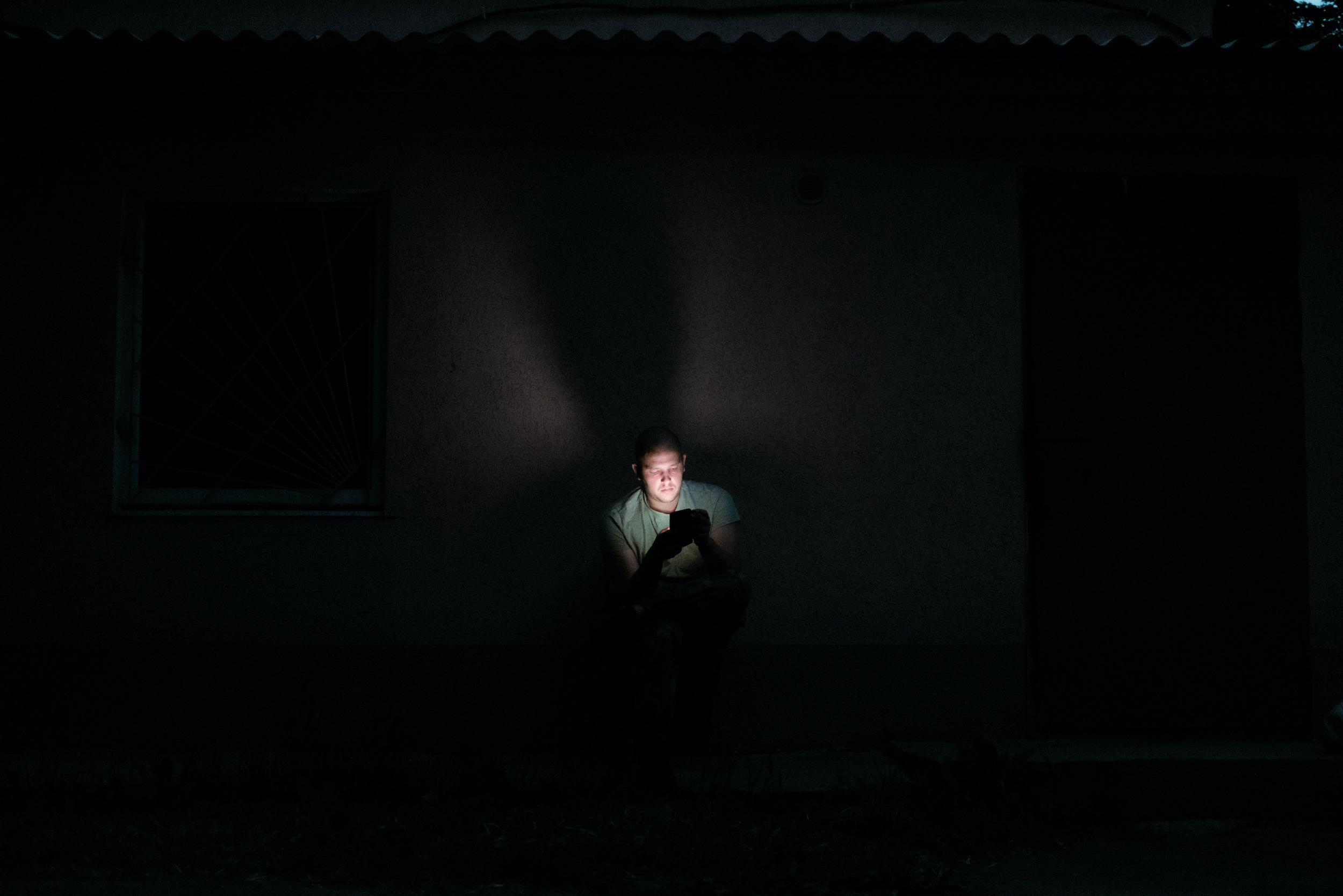
Kramatorsk, Bakhmut, and Sloviansk residents can be classified into three groups. The first support Ukraine. The second want to end the war. They don’t care who wins. Medics and the military call those Zamirs (a play on “za mir”, the Russian for “for peace” — Translator’s Note). And the third are local vatniks (a Ukrainian derogatory term for Russian supporters — TN). They want Russia to win and reveal our soldiers’ positions to the occupiers. Upon entering the city, I looked in our rear window and saw a woman on the curb give us a middle finger. That’s just sad. People like these are no more or less numerous than others — they just exist.
The Sloviansk locals who don’t care who wins as long as there is peace have been nicknamed Zamirs.
In the field of medicine, there is a notion of a long and short leg. The short one is saving the injured from the frontline. The most important thing here is to stabilize the injured person. The surgeries are usually conducted in the hospital, and then the patients are transferred to Kramatorsk. Press is not invited on sorties like these. The long leg is a call for medics to provide assistance in the city — both to the military and the civilians. During one such call, we had to give medical care to one Alyosha — a local who looked almost like a homeless person. Alyosha got himself into a curious story. A while back, he stole his neighbour’s bike, and the rightful owner decided to remind him about it only now, for some reason. So, the guy found Alyosha, who was blissfully drinking at the time, and smashed his head with a hard-rubber baton. It was a sight to behold when we were finished with him. Just imagine a starry summer night, with the moon shining in the sky and Alyosha’s gaunt figure illuminated by our headlights, with his head bandaged.
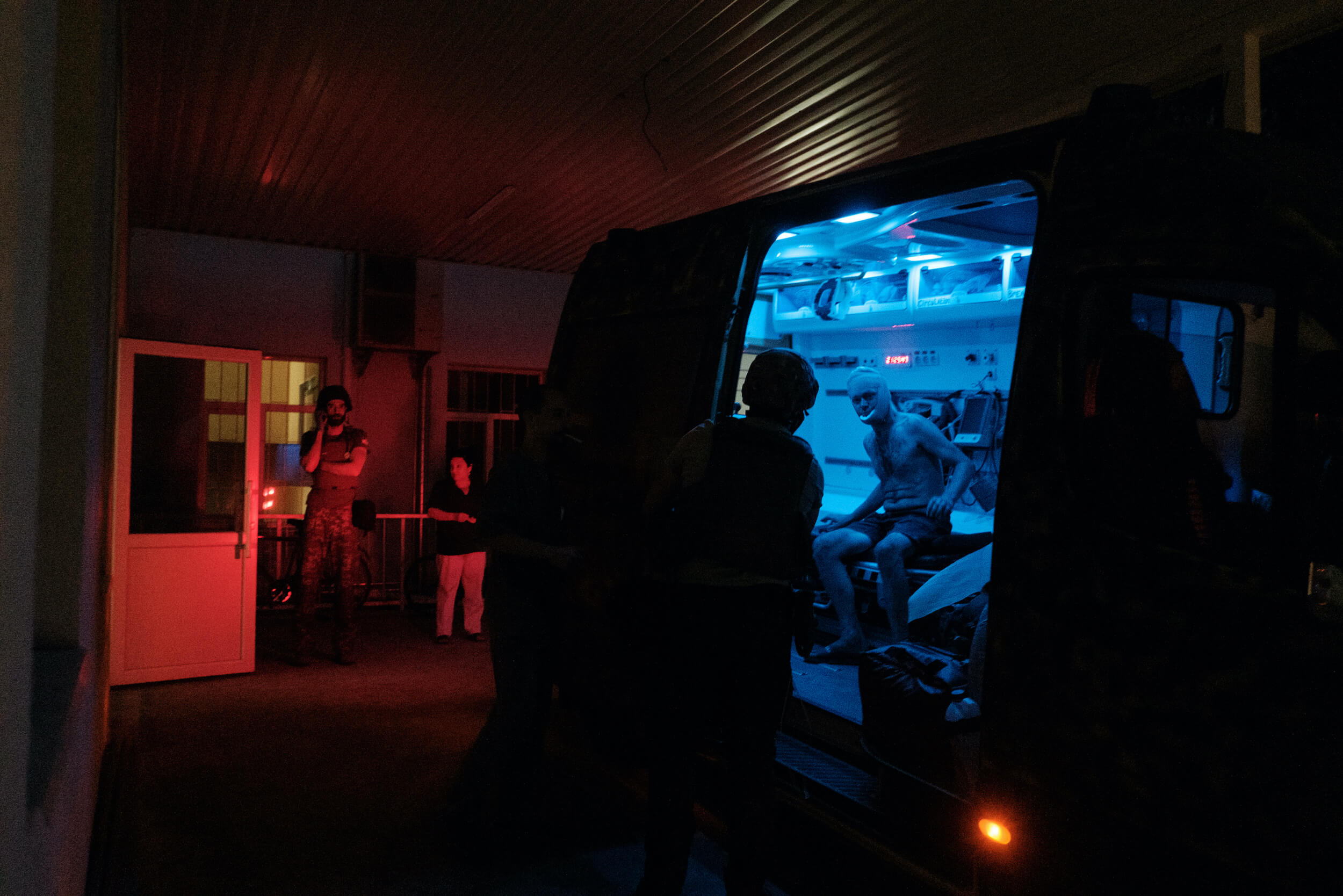
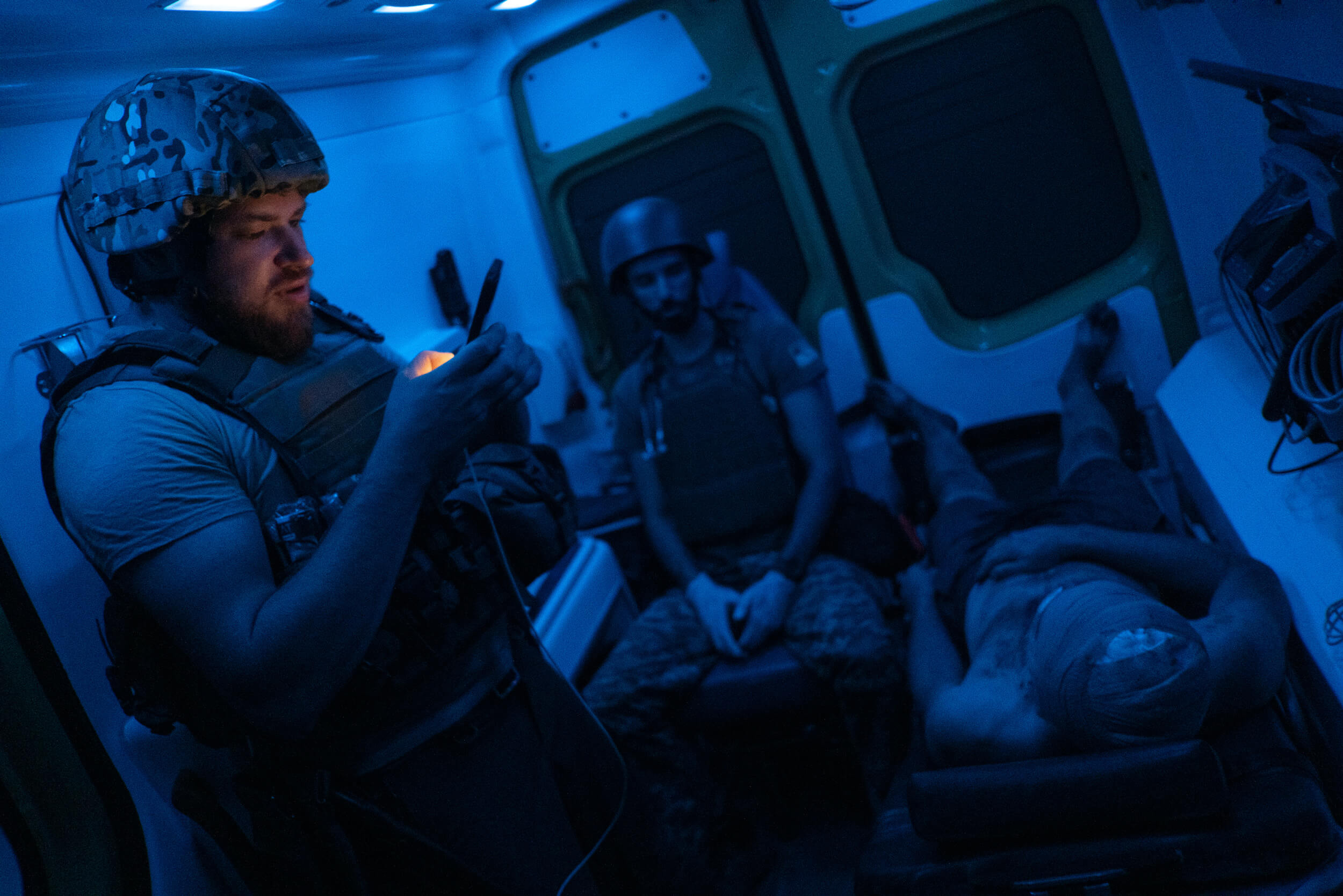
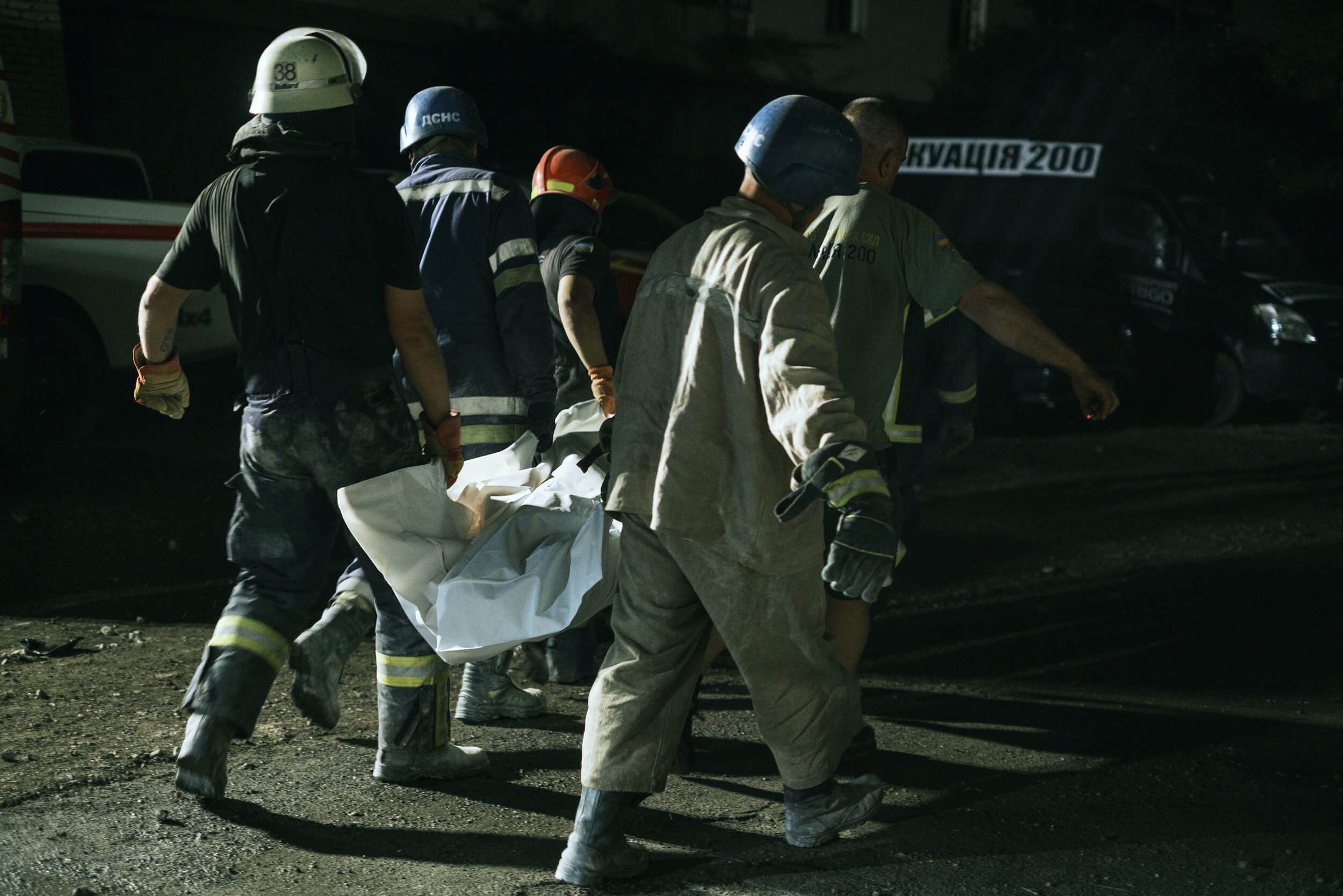
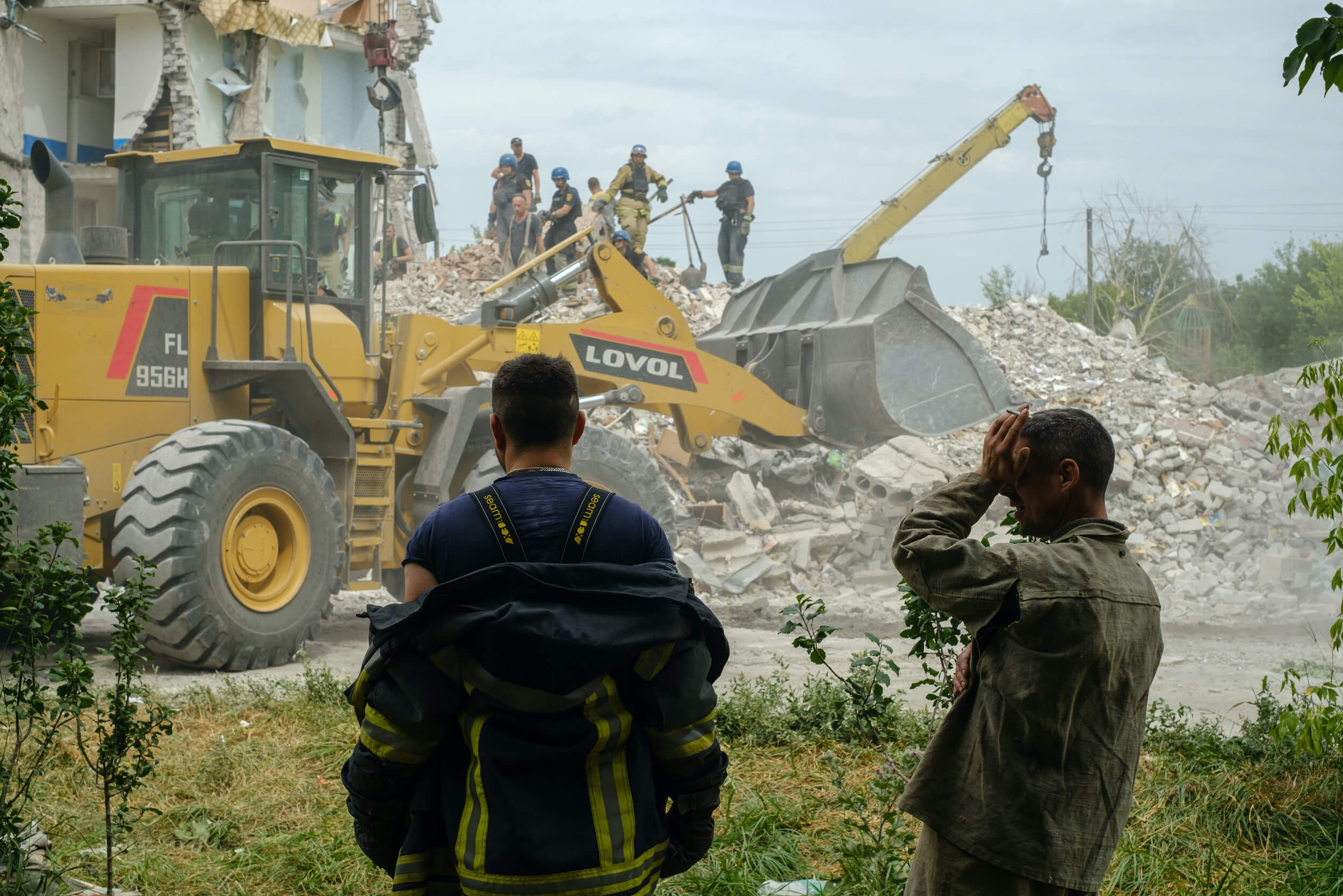
A medic’s rule of thumb is that keeping yourself alive is a priority. Treating an injured person, you use their medkit, not yours. Why? Well, one dead person is still better than two. If the injured person has no medkit of their own, the medic acts at their own discretion.
Treating an injured person, you use their medkit, not yours. Why? Well, one dead person is still better than two.
The strikes grew much more frequent on the last day of our stay. As a rule, the more shelling, the more injured. We set in the corridor as the explosions grew closer and closer. And then they told us that the injured were brought in. When I entered, I saw a woman’s body on the table. Her face was a bloody mess. Also, a man lay in the corridor, his thigh riddled with shrapnel. They were a couple. Medics saved the woman, but the man died.
I couldn’t pull myself together for some time after this. I kept thinking, how do medics bear all that? Then it was explained to me that doctors just treat this as their work. Humour also helps. Although sometimes rough and dark, it keeps them sane.
Those people are real heroes. They do everything in their force to help us win. And who am I? I’m just a guy with a camera doing nothing to help. This thought made me sad for some time. But then Kuzma confided in me that he felt he wasn’t doing enough to help. His words blew my mind. “Who is then?” I asked. Then, a few minutes into our conversation, we came to a mundane, albeit crucial conclusion — everybody must do their job.
